featured
Marijuana Might Be A Better Hurricane Party Guest
Published
6 days agoon

All over the coast they seem to pop up with a storm arrives, but instead of booze, marijuana might be better.
The season is in full swing and the first big storm has formed. But when a hurricane barrels toward the coast, many communities turn to a surprisingly time-honored ritual — the hurricane party. Neighbors gather, share food, and ride out the storm together. While alcohol has long been a staple at such gatherings, more people are discovering cannabis can be a calmer, safer, and even more practical choice during the long hours of waiting.
RELATED: The History Of The Cocktail Party
Alcohol can quickly dull reaction time, cloud judgment, and lead to risky decisions. During a hurricane, when conditions can change in an instant, maintaining some clarity is crucial. Cannabis, depending on dosage and strain, generally produces less severe physical impairment, allowing partygoers to stay more aware of weather updates and ready to act if the situation changes. This can make it easier to pivot if evacuation or immediate action becomes necessary.
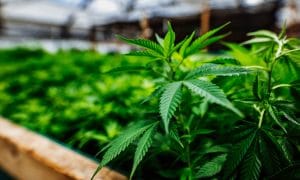
Hurricanes are stressful — the combination of howling winds, pounding rain, and uncertainty about damage can fray nerves. Cannabis is known for its ability to ease anxiety for many users, helping replace tension with a sense of calm. relaxation can make a big difference in the group atmosphere, fostering connection and keeping panic at bay while the storm rages outside.
One of the most common consequences of a hurricane isn’t direct destruction, but power outages. Without air conditioning, refrigeration, or even a fan, sleeping can be miserable. Cannabis can help induce restful sleep despite heat, humidity, and noise, which is a welcome relief when you’re trying to rest in the middle of an extended blackout. Unlike alcohol — which often disrupts deep sleep — cannabis can help users get the restorative rest they need to stay alert and resilient.
RELATED: Mixed Messages From The Feds About Cannabis
In many major storms, the majority of residents in affected zones lose electricity for hours or even days. After Hurricane Irma in 2017, millions in Florida endured days without power in sweltering late-summer heat. In one infamous incident, a large apartment building’s backup generator failed, leaving dozens of residents trapped in elevators and hallways with no light, AC, or communication — a sobering reminder hurricanes often test endurance more than anything else.
In that environment, staying relatively clear-headed, managing anxiety, and getting some rest can be more valuable than chasing the buzz of strong drinks. While every hurricane party is unique, those choosing cannabis over alcohol often find they’re better able to ride out the storm calmly — and remember it clearly when the skies finally clear.

Author: mscannabiz.com
MScannaBIZ for all you Mississippi Cannabis News and Information.
You may like
-
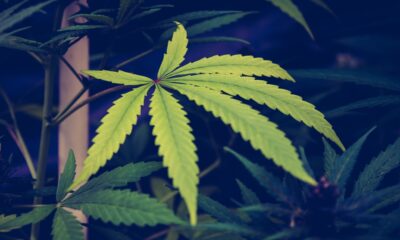

Major trucking group’s cannabis rescheduling concerns (Newsletter: August 18, 2025)
-


From The Vault: The HIGH TIMES interview Allen Ginsberg (1992)
-


Court throws out part of New York’s marijuana licensing rules
-


Watch Immigration Enforcement Rattles the Cannabis Industry | SoCal Matters Season 2025
-


Two arrested as police close four unlicensed cannabis shops in Seneca Falls
-
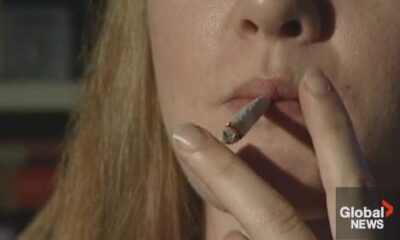

High-potency cannabis use linked to psychosis | Watch News Videos Online
featured
Major trucking group’s cannabis rescheduling concerns (Newsletter: August 18, 2025)
Published
51 minutes agoon
August 18, 2025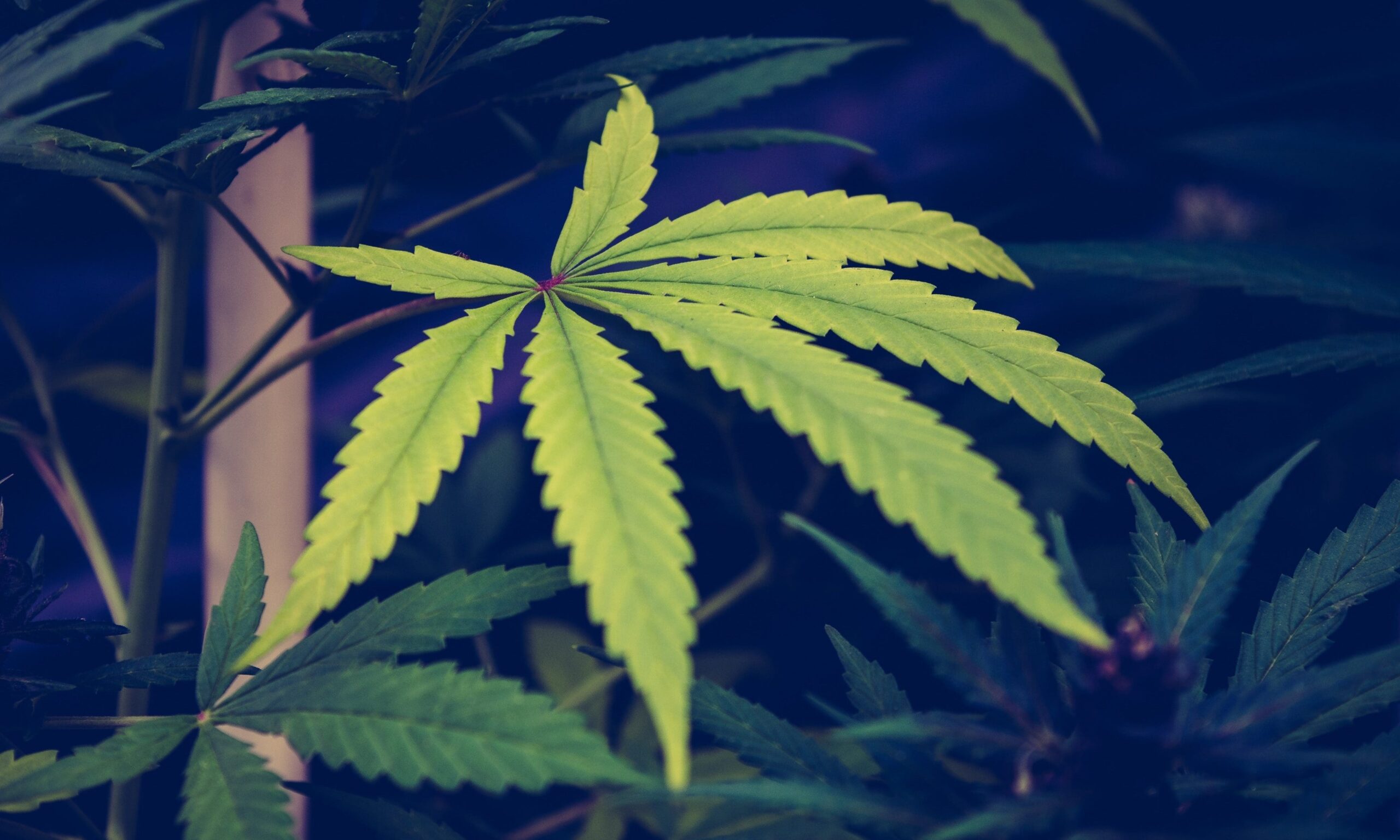
Senator touts hemp research funding; TX medical marijuana rules unveiled as hemp ban advances again; Study: Cannabis as opioid alternative for pain
Subscribe to receive Marijuana Moment’s newsletter in your inbox every weekday morning. It’s the best way to make sure you know which cannabis stories are shaping the day.
Your support makes Marijuana Moment possible…
Free to read (but not free to produce)! We’re proud of our newsletter and the reporting we publish at Marijuana Moment, and we’re happy to provide it for free. But it takes a lot of work and resources to make this happen.
If you value Marijuana Moment, invest in our success on Patreon so we can expand our coverage and more readers can benefit: https://www.patreon.com/marijuanamoment
/ TOP THINGS TO KNOW
Sen. Amy Klobuchar (D-MN) touted her successful amendment to provide half a million dollars in funding to support research on hemp fiber, calling the cannabis plant “one of the oldest and most versatile crops in agriculture.”
The Texas Senate State Affairs Committee unanimously approved a bill to ban consumable hemp products with any amount of THC, hours after Gov. Greg Abbott (R) called a second special legislative session with hemp regulation on the agenda.
The Texas Health and Human Services Commission posted draft proposed rules detailing how doctors can recommend new medical cannabis qualifying conditions and laying out regulations for pulmonary inhalation devices for low-THC marijuana.
The American Trucking Associations sent a letter telling Transportation Secretary Sean Duffy it is “deeply concerned” about the potential impact of federal marijuana rescheduling on drug testing programs for drivers.
A new study of chronic pain patients found that “the introduction of cannabinoids can produce useful reductions in opioid consumption in real-world settings, with additional benefits for disability and insomnia.”
- “Opioid consumption decreased significantly after both 6 and 12 months. Physical activity and sleep also improved. These findings indicate that medicinal cannabis can help patients to reduce their opioid consumption and improve their physical activity and sleep.”
Texas crime lab officials told lawmakers considering a ban on hemp products with any amount of THC that they don’t have enough resources to test cannabis as they prioritize processing fentanyl and sexual assault kits.
Indian tribes are increasingly seeing opportunity in hemp-derived THC products and the cannabis industry more broadly, even in tribal communities located within states that continue to criminalize marijuana.
/ FEDERAL
Drug Enforcement Administration Administrator Terrance Cole was named emergency police commissioner for Washington, D.C., though the move was later reversed amid litigation over the issue.
Sen. Roger Marshall (R-KS) said that “Mexican cartels are involved in the marijuana farms in Oklahoma and Colorado, and they are smuggling that into states like Kansas, where marijuana is illegal, addicting our youngsters, especially to those types of drugs.”
/ STATES
Florida’s attorney general announced the arrest of a petition gatherer working in support of a proposed marijuana legalization ballot initiative for allegedly submitting a dead woman’s signature.
New York regulators are being sued by marijuana businesses over a zoning rule mix-up that threatens to force dozens of dispensaries to move or close.
The Massachusetts state auditor published a report criticizing regulators’ oversight of the cannabis industry. Separately, regulators filed proposed rules for marijuana social consumption businesses.
California regulators announced a recall of marijuana products due to the use of CBD isolate from an unknown and unidentifiable source.
Louisiana regulators are asking a federal judge to pause a lawsuit challenging hemp rules while federal policy on the issue is settled.
Maryland regulators published updated guidance on cannabis micro dispensaries.
Missouri regulators issued a variance to allow variety packs of certain edible marijuana-infused products.
Minnesota’s top marijuana regulator spoke about efforts to license businesses, including microbusinesses.
The Utah Medical Cannabis Policy Advisory Board will meet on Tuesday.
Michigan regulators will host an event about terpene profiles and best practices for vaporized products on September 11.
—
Marijuana Moment is tracking hundreds of cannabis, psychedelics and drug policy bills in state legislatures and Congress this year. Patreon supporters pledging at least $25/month get access to our interactive maps, charts and hearing calendar so they don’t miss any developments.![]()
Learn more about our marijuana bill tracker and become a supporter on Patreon to get access.
—
/ LOCAL
New York City’s mayor announced a proposal to allow involuntary commitment of people with substance use disorders.
/ INTERNATIONAL
The Philippine Senate Office of the Sergeant-at-Arms is investigating the alleged use of marijuana in the legislative chamber by a staffer.
/ SCIENCE & HEALTH
A review suggested that “cannabidiol may benefit blood pressure control, specifically with prolonged use in hypertensive patients.”
A study found that “hemp seeds represent a sustainable, nutrient-dense food ingredient with momentous potential to support health and diversify agricultural economies.”
/ BUSINESS
Tilray Brands, Inc. submitted an application requesting an extension to regain compliance with Nasdaq’s listing standards regarding price per share.
Curalef Inc. employees in Maryland secured class status in a lawsuit accusing the company of stealing tips.
Cresco Labs Inc. closed a $325 million senior secured term loan refinancing.
Michigan retailers sold $274.7 million worth of legal marijuana products in July.
/ CULTURE
Bill Maher referenced his meeting earlier this year with President Donald Trump in light of the administration’s consideration of marijuana rescheduling, joking, “And they say it wasn’t smart to have dinner with him.”
Make sure to subscribe to get Marijuana Moment’s daily dispatch in your inbox.

Author: mscannabiz.com
MScannaBIZ for all you Mississippi Cannabis News and Information.
featured
From The Vault: The HIGH TIMES interview Allen Ginsberg (1992)
Published
6 hours agoon
August 18, 2025
Original publication: February 1992.
The HIGH TIMES interview Allen Ginsberg
Count Beat poet Allen Ginsberg among the nation’s first hemp activists. After his seminal poem Howl thrust him into the national spotlight in 1956, Ginsberg began speaking out in favor of marijuana-law reform, gay rights and a myriad of other causes close to his heart. Since then, he’s produced a body of work (including Planet News, the anti-nuke Plutonian Ode, and White Shroud) that has earned him the recognition of not only the counterculture, but also that of the literary establishment—receiving the 1974 National Book Award for The Fall of America.
Besides Ginsberg’s literary notoriety, he’s recorded with Bob Dylan and the Clash, and his recent spoken-word/music disc The Lion for Real is tender and raunchy—highly recommended. Ginsberg also recently wrote lyrics for an opera, Hydrogen Jukebox, a collaboration with noted composer Philip Glass. And as if this weren’t enough, Twelvetrees Press has just released a beautiful book of the poet’s photographs.
A devotee of Tibetan Buddhism since 1972 (and less and less a pot-smoker), Ginsberg, now 65, teaches poetics during the summer at the Naropa Institute’s Jack Kerouac School of Disembodied Poetics in Boulder, Colorado, where this interview took place. At first testy due to his consistently hectic schedule, Ginsberg quickly warmed up and proved to be a generous interview subject, his stream-of-consciousness replies sounding like improvisational poetry.
by Gregory Daurer
HIGH TIMES: Why do you think there’s a revival of interest in the ’50s Beat Generation and its literature?
Allen Ginsberg: The literature and mythology of the Beat generation [runs] counter to the current hyper-technological, homogenized, money-obsessed, security/fear-based, militaristic gross-out. It specialized in the analysis of the technological Police State; the refreshing insight into ecological sanity; the revival of the Whitmanic notion of American friendship and affection as the basis of democracy; respect for individuality; disrespect for the law where “the law is an ass,” pertaining to psychedelics, marijuana and the handling of heroin not as a medical thing but as basis for some sort of Police State structure.
All these themes make the original Beat ethos quite user-friendly, compared to the destructiveness of the supposed “straight” world that can go nuts, killing one hundred fifty thousand people in Iraq for the sake of oil that’ll pollute the planet. These themes are perennial values in a decade without values in America—a nation sustained by abuse of the earth’s resources and consuming a disproportionate amount of raw materials and creating a disproportionate amount of garbage and possessing a disproportionate amount of military power for such a small nation.
HT: What Beat works best reflect the ideals you’ve discussed?
AG: Books like On the Road or Visions of Cody, or Visions of Gerard or The Subterraneans—any of Kerouac’s writings coming from his spontaneous natural mind. Or Burroughs’ extremely intelligent analysis of the addiction situation in America. Or my own sort of exuberant, sometimes gay, sometimes psychedelic, sometimes Buddhist, sometimes angry, sometimes funny, natural mind—see Collected Poems or White Shroud. Or Gregory Corso’s historical scope in Mind Fields, because he’s a pretty good one for applying Greek myth to contemporaneity. Or Gary Snyder’s Practice of the Wild, correlating back country with wilderness of mind. Or Philip Whalen, the first Beat poet abbot. Or Michael McClure’s new biological poetry, nature talking. As well as the sometimes inspiring myths of Neal Cassady who transcended—or spanned—several generations of American psyche and road simultaneously—from Kerouac to Kesey.
HT: Can you comment on the genesis of the Jack Kerouac School of Disembodied Poetics—how that came together and how it expresses these values you’re discussing?
AG: Well, to begin, the Ven Chögyam Trungpa Rinpoche, was a Tibetan lama and came to Boulder and established a meditation center, Dharmadhatu, and invited me and Gary Snyder and Robert Bly out for a poetry reading to raise money for it in 1972.
At the end of summer, 1974, Trungpa sat down with me and John Cage and Anne Waldman and Diane di Prima and a few of his students and said, “Can you fellows take the responsibility for forming a school of poetry here within Naropa Institute to teach the Buddhists pure mouth, poetic mouth, because they’re not going to be good teachers or good Buddhists unless they use the world of speech skillfully to enlighten other people, to liberate other people. And at the same time, the poets who work here can learn meditation and sanity so there’s less deaths from alcohol and suicidal behavior and doubt about poetry being OK. So, I thought that view was great. It’s gone on for seventeen years, and the school finally got accredited about five years ago in 1986.
HT: What are your current views on psychedelic drugs?
AG: The last thing I tried was Ecstasy. The first trip was really great—here in Boulder—five years ago. One immediate conclusion I came to was that Ecstasy was misnamed: it was not a poet who laid that trip on the poor drug. It’s “Empathy.” “Ecstasy” is some kind of hippy-dippy exaggeration hyperbole. “Empathy” is more accurate, because the trip immediately made me feel very sympathetic, empathetic to everybody I knew.
HT: Have you tried it since then? AG: Second time I took it, same thing, but much diluted and it wasn’t that interesting. The amphetaminesque aspect of it was dominant and I didn’t like that. I don’t like amphetamines or cocaine—they just make you nervous and frazzle your nerves and exhaust your endorphins….
HT: What did you learn from psychedelics?
AG: Psychedelics seem to me a classic educational tool or classic visionary tool. The only way I’ve slightly changed my view of them—it’s been twenty years of meditating now—I think it’d be useful to have some information or instruction or experience in centering yourself with meditation practice. Preferably nontheistic: so you don’t get trippy on Hindu gods, or Christian gods, or Jewish Jahvehs, or monotheistic monsters in the sky, or devils; but more open space as in Buddhist and some Hindu and some Kabbalah and some Sufi view—a centering mechanism so you don’t get entangled and trapped in your own projections. And being trapped in your own projections on acid is something I’ve experienced often and I can see how it could lead to disasters.
HT: Explain what that concept means.
AG: Some people get into a circular feedback, “Oooh, I’m in a human body, ooh. I’m dying, I must be dying this very minute, maybe I’m dying now, oooh, call the police!” And that’s how one gets entangled in one’s own projections. Or take off your clothes and jump in front of the cars and say, “Stop all the machinery!” So you might get run over or arrested, not knowing skillful means of communicating naked nature.
HT: What would “skillful means” be?
AG: The “skillful means” aspect of activities comes as a by-product of centering. The “wisdom” aspect might be psychedelic perception of the transitoriness of the world—with minute, particular detail glittering in the mandala of the eyeball, a sense of emptiness in the world. So, combining wisdom and skillful means together would be necessary.
Unfortunately the teaching of the government is neither wise nor skillful. It’s fixated on some God realm or some monotheistic central statism.
And the government is entangled in its own projections, the projections that it had originally when the CIA introduced acid: that psychedelics were war weapons, and would drive the enemy nuts. They never got over it, because perhaps they were nuts themselves, the CIA director of project MK/ULTRA.
HT: You’ve described Timothy Leary’s psychedelic retreat in upstate New York—Millbrook—as a remarkable place. What do you recall about those times in the earlv ’60s?
AG: Well, they trained people—psychologists and Eastern advisors—with a foundation aimed at exploring reactions and uses and safe procedures with LSD or other psychedelics. Hospitable. Open. Actually, quite scientific compared to the government’s experiments, which were totally unscientific. And, as someone who took part in legal government experiments, I know how they were unscientific.
“They put me in a terrible room with whitewashed tile hospital walls and all sorts of batteries and machines and stuck electrodes in my skin….”
HT: How were the government sponsored acid tests unscientific?
AG: They put me in a terrible room with whitewashed tile hospital walls and all sorts of batteries and machines and stuck electrodes in my skin and treated me like a hospital victim. It wasn’t the right way to take LSD.
Leary had you take it in the woods or in the big house with friendly people so you didn’t become an “object.” See, in government experiments at the Stanford Institute of Mental Health— 1959—they treated subjects like objects to be studied, rather than living persons with whom to relate. Leary was treating the people he was working with as living, autonomous, individually-different people and taking a lot of notes and information on the subjective experience, saying that all you can get from that experience is subjective description.
Just like with lovemaking: You can measure the prick or the pulsations or the number of sperm or the body heat, but you won’t get the subjective thing in the belly: How does it feel in the belly or the heart when you relate to someone? And that’s the key to sex— you can’t measure it from the outside. And that goes along with [physicists] Heisenberg and Einstein: the measuring instrument determines the appearance of the physical world. Anyway, the government was inept and Leary was ept.
HT: What did you find useful about Leary’s methods?
AG: Millbrook was a safe center and he evolved a number of good generalizations for the use, mainly: Don’t make it secret, be candid, give the people the drug to take as much as they want themselves, so that they control the input rather than some controller— take it in a relaxed setting.
Leary came to the generalization that the set and setting influence the trip, which is the most wise thing that’s been said so far by any psychologist about drugs, and it’s the key to why some people freak out and it’s the key to why the whole government criminalization of the psychedelics put a wet blanket on the whole psyche.
So, Millbrook was an oasis of sanity. Naturally they went overboard here and there and got caught up in their own ideas of LSD saving the world or whatever—cleaning out their brains with LSD. But they were actually quite judicious in their use. You know, give it to one or two people and there’d always be observers and guides—people to help out if someone got into a panic or got upset. They were able to take care of it. They built a support system psychologically.
HT: Who do you recall first lining up for Leary’s Harvard psilocybin experiments?
AG: Kerouac. And Bob Kaufman, the black poet, living upstairs. Leary came to my apartment—a real small Lower East Side living room. Kerouac and Kaufman came and we tried psilocybin. I remember “Coach Leary,” as Kerouac saw him, like an Irish football coach, and Kerouac looking out the window and saying in a funny voice,
“I feel like pissing at the moon,” or something.
But then Kerouac said one great thing when he realized the import of it—though he’d had peyote ten years earlier. He said, “Walking on water wasn’t built in a day.” I’ve always remembered that in terms of the change of American consciousness or the alteration of the hyperindustrial monstrosity—a deconstruction which is necessary for the survival of the planet. That kind of miracle isn’t built in a day. Slow patience.
That’s one of the best things I’ve ever heard about acid or psychedelics as distinct from crazed enthusiasts— who think with one experience they understand the secrets of the universe.
HT: What do you think of the War on Drugs?
AG: I think it’s a fraud, and it’s a conscious fraud. The government has been entangled in the sale of hard drugs all along: mainly the transportation of heroin from the Golden Triangle from the ’60s on, at least.
The tradition goes on through Central America, where you see marijuana and cocaine being used to pay for arms. That’s been gone into at great length with Kerry’s Senate subcommittee; so, that’s pretty well established—even in the mainstream. And the government, simultaneously appointing a War on Drugs, has been secretly dealing drugs or using drug money for its own nefarious purposes, secret and illegal, off-the-shelf CIA/NSA operations.
So, the War on Drugs doesn’t make any sense at all. It’s a completely chaotic and evil, sinister, outright criminal enterprise by the government. It’s not a War on Drugs; it seems almost an effort to spread drugs.
HT: What do you see as a solution?
AG: The only way there’s ever going to be a solution is to legalize grass as a cash crop for small family farms, to reinvigorate the small family farm ideal in America and make it economically feasible. Send the junkies to doctors either to cure or maintain with natural opiates that are better than heavy, synthetic methadone. The latter seems to give too heavy a habit and is too hard to kick; so some natural opiate would be better as [Herbert] Huncke said in a previous issue [Sep. ’90 HT]. Liberate the psychedelics for scientific or spiritual use, maybe licensed in some way: You know, maybe you can get it free if you take a course in samatha-vipassana or a course in centering or tai chi.
And you could then reexamine what you wanted to do with cocaine and amphetamines, because they do lead to psychosis, they are a threat like alcohol. They’re not as big a threat as alcohol, but they are the similar parallel threat to the family, to friends, to houses—violence and burglaries rise with that kind of psychosis. But at least we could look at the real heavy substances to find a way out, or cure or “skillful means.”
But as long as you pile up the War on Drugs as a war on all drugs and call everything a drug whether it’s a dried herb or natural opium or a mushroom or a cactus plant—that doesn’t make any sense at all. It never did. It’s such a prejudiced, stupid, narrow-minded, ignorant setup that it must be a setup on purpose. And the purpose would be to extend government control over individual lives, over dissidents and seekers for an authority outside of organized state and rigid religion.
HT: What emboldened you to start speaking out in public against drug laws in the ’50s?
AG: What emboldened me was meeting Huncke and hearing about his situation as a junkie and realizing he was in trouble and the police were hounding him like Nazis hounding a Jew, something parallel. He had this addiction. there was no doctor that could cure him. He had a medical condition and he was being hounded by the police with guns. It didn’t make any sense at all. It wasn’t like you read in the paper; he wasn’t a dope fiend in that sense. He was just a guy in trouble. And a brilliant and sympathetic guy.
I went on a boat to New Orleans in 1945 or ’46 and the Puerto Rican messman/roommate turned me on to some grass and told me where I could find some in Harlem on 11th street. The difference between the government party line on marijuana and my direct experience of it was the difference between a world of abstract fantasy— the government’s—and my own concrete realization—an experience that was not only sort of innocuous, but also I had surprisingly funny perceptions.
HT: Like what?
AG: I can remember the first time I really got high in Manhattan. We got in a car and couldn’t find our way around the block practically. But we wound up going into a small cafe, and I ordered a black-and-white sundae. And it was this extremely cold, sweet, vanilla white ice cream covered by thick, hot, black, syrupy chocolate and it was amazingly good! My taste buds never realized the common black-and-white sundae: the humor of that combination, the polarity of it, the commonality, the commonness—this is the all-American creation, this completely yin-yang or polar opposite, artistic creation! And then all of a sudden I think of the government idea that marijuana drives you mad like a frothing dog until you take an axe and kill somebody. Instead they give me ice cream!
HT: What were some of your other grass experiences in the late ’40s and early ’50s?
AG: I’d go to the Metropolitan Museum of Art to look at the Carlo Crivelli and other Renaissance paintings and I went on to look at Cézanne and Paul Klee from that point of view. I found it useful for the study of aesthetics. I really don’t dig people using it just for giggling and having parties and getting drunk on it, because it seems that with marijuana you can refine your senses, if you make that your purpose.
So, the difference between my direct experience of grass—and a whole generation who had direct experience—and the government party line depicting grass as monstrous, causing psychosis—gave me to realize that the habitual tendency of the government seemed to be intended to close the “doors of perception,” lest people become too individualistic and begin to suspect the government of being some type of network plot to keep people asleep, in line, not merely physically, but psychologically.

Author: mscannabiz.com
MScannaBIZ for all you Mississippi Cannabis News and Information.
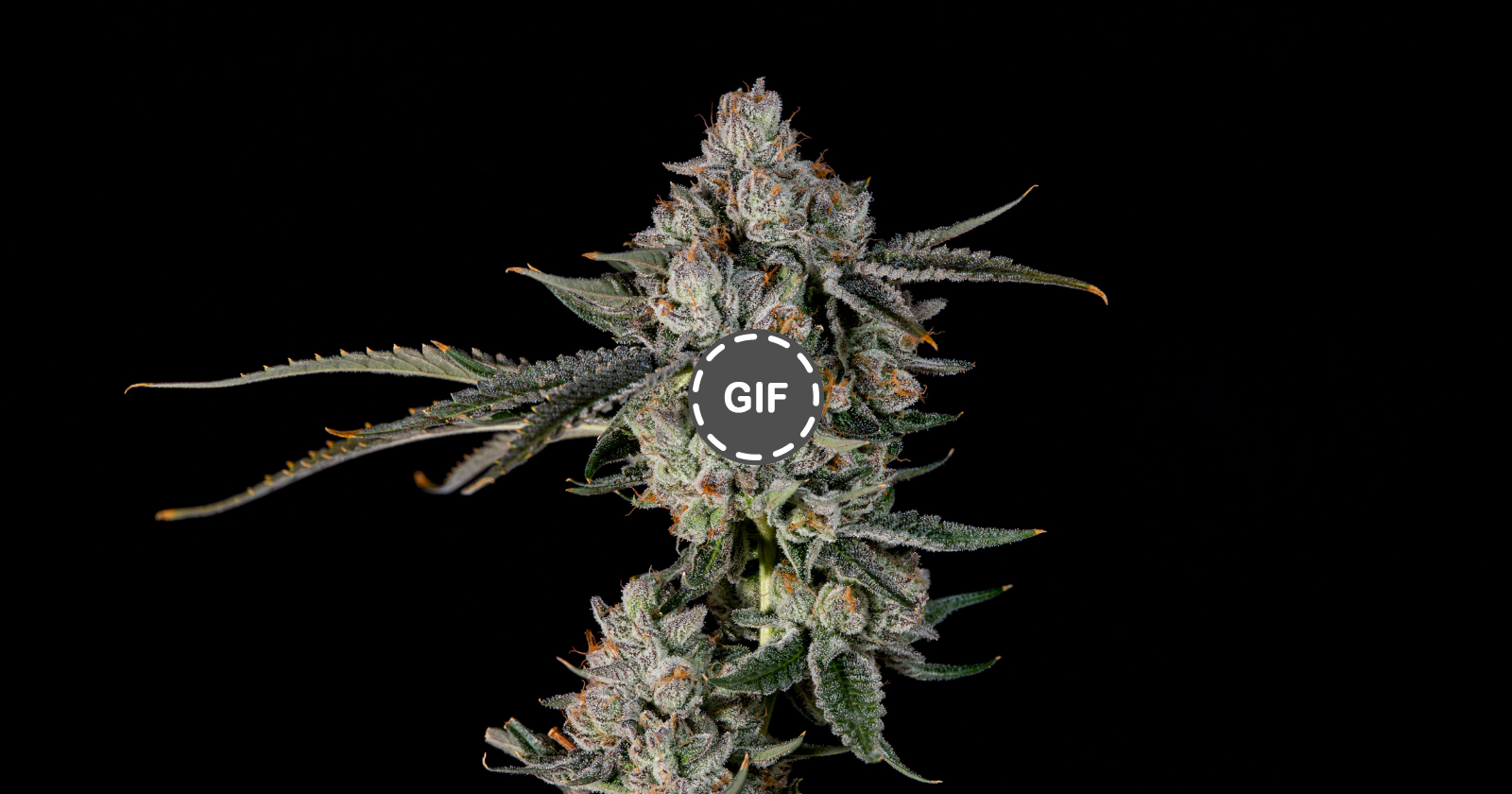
We have a lineup of absolute hitters to help you celebrate August in our High Times Strains of the Month. Whether you’re looking for fuel, candy, or Z, this group of strains is sure to have something in your wheelhouse.
This list is a celebration of great genetics grown well and we hope you’ll have a chance to get your hands on some of these offerings.
PINK DIRT – Jeu Green
(Skunktek Sour Diesel x ECSD/Stardawg x Sour Face)

Jeu Green, who took top honors at The Billys in New York City this year, has added another hitter to his stable. DIRT enthusiasts will be thrilled with this new offering he found in a pack of Sour Skunkface seeds by Skunk and Sour (@skunkandsour).
“Massachusetts breeders got heat,” Green told High Times.
Green started the phenohunt on a quest to find pink weed. When he was younger, his father got a big bag of crazy pink weed that was considered an “herban legend” around his hometown and talked about for years. He only popped 12 seeds, but he found the traits he was looking for on the selection he made with its pink pistils and tight bud structure standing out to the award-winning grower. Green emphasized that even though it was a small phenohunt, sometimes those special cuts find you.
Green is a gas enthusiast when it comes to his preferred flavor profile for cannabis and the PINK DIRT certainly checks that box. Green noted there are also some pink lemonade undertones and the total package will leave a sour mouth coat. As with other fuel-heavy strain profiles, the impact is definitely there. Green argues she has a bit of a creeper high that will get you if you sleep on her.
“Everything I do is DIRT and she is the pink one like Kimberly, the pink Power Ranger,” Green said.
Green is the only one in possession of the PINK DIRT.
Brainwash – Alien Labs x Talking Terps
(Z x Oz Kush #18)

Brainwash came from a 60-seed phenohunt done by Alien Labs following a breeding project at their Sacramento facility. Alien Labs founder Ted Lidie told High Times the winner was selected for its OG-like flavor that hits a midway point and turns to candy Z. Another factor in the selection was how much impact the strain has, which can sometimes be lacking in Z crosses.
“Its proximity to a true OG with something different inside the nug,” Lidie said, “Z is there but ephemeral. The OG really sticks with you.”
The pairing has proved very successful out of the gate. It recently took home top honors in Proper Doinks’ inaugural Arizona bracket against a bunch of hitters. It was recently Alien Labs’ top-selling strain for a couple of months in a row. All in all, it’s been a big success for Alien Labs and their friends at Talking Terps for their first-ever collaboration.
The name came easily, according to Lidie, it’s a reference to washing your brain. He noted that it fits with Talking Terps branding, current culture and has multilayered meaning like a lot of Alien Labs strain names.
Alien Labs is the only cultivator in possession of the strain. Also, don’t sleep on the California batches. They definitely share the same quality as the award-winning rendition coming out of Arizona.
Zunicorn – Zero Gravity Exotics
(Z x TMZ (Z x Candy Fumes (Z x Sherbanger)

Zunicorn is a standout pheno of World War Z bred by Bloom Seed Co. and cultivated by Zero Gravity Exotics in Oakland, California. In a world where new Z crosses are popping up on an almost monthly basis, the Zunicorns is a fantastic offering that jumps out of the jar with an even sweeter nose that’s arguably a little bit louder than the original Z. The extra sweet notes on top of the Z dominant profile are a result of the Candy Fumez in its lineage.

The Zero Gravity team picked up the seeds at Ego Clash 2025 and popped them immediately. While they only had six seeds to hunt through for winners, they ended up finding multiple keepers. The Zunicorn got its name from being the unicorn of the pack.
Their selection grows very similar to Z, but they believe it to be a bit more commercially viable, given its slightly improved vigor, structure, and look. Zero Gravity Exotics are the only cultivators currently in possession of the cut.
Zangbanger – Wizard Trees
(Sherbanger #22 × Zangria)

While originally Wizard Trees was most associated with elite cannabis flower, their recent lineup of hitters has turned the brand into one of the most sought-after breeders on the planet. This was further confirmed by the massive lines in Barcelona and Berlin this year as people hoped to get their hands on the lineup of genetics that’s very much proven to offer an excellent pairing of commercial viability and quality smoke.
Expect the Zangbanger to only add to the hype. The winning phenotype beat out other top-tier keepers from the Zangria line, including Gas Gimlet and Zoza, which are still monsters in their own right.

The selection was made purely on smoke quality according to the Wizard Trees team. They argue the insane blueberry terpene profile stains your mouth even more than Z. That’s not too much of a shocker, given Zangbanger has been testing at a consistent 4.5% to 5% terpenes. That is a massive number, Scott from Wizard Trees noted, even his best strains rarely hit 4%.
The loud candy-blueberry nose translates perfectly to the flavor of the experience. And you’ll enjoy those notes all the way through the joint, given how loaded it will be with terpenes.
Photos courtesy of their respective growers

Author: mscannabiz.com
MScannaBIZ for all you Mississippi Cannabis News and Information.

Major trucking group’s cannabis rescheduling concerns (Newsletter: August 18, 2025)

From The Vault: The HIGH TIMES interview Allen Ginsberg (1992)

Court throws out part of New York’s marijuana licensing rules

Watch Immigration Enforcement Rattles the Cannabis Industry | SoCal Matters Season 2025

Two arrested as police close four unlicensed cannabis shops in Seneca Falls

High-potency cannabis use linked to psychosis | Watch News Videos Online

High Times Strains Of The Month: August 2025

Texas Crime Labs Say They Don’t Have Enough Resources To Test Hemp Products For THC As Lawmakers Consider Ban

Trump on changes to marijuana policy: 'We're looking at it'

Realtors’ Stolen Credit Cards Are Used to Build an Illegal Marijuana Farm

Grady County Sheriff's Office makes arrests in illegal marijuana bust

High Times Was The Most Influential Publication Of My Life

Revelry NYC 2025: Inside New York’s Cannabis Culture & Industry Festival

Revelry NYC 2025: Inside New York’s Cannabis Culture & Industry Festival

Indian Tribes See Opportunity In Hemp THC Products, Even In States That Continue Marijuana Criminalization

Two Oakland cannabis dispensaries targeted again by ram-raiding burglars

Trump on changes to marijuana policy: 'We're looking at it'

Bill Maher Takes Credit for Possibility Trump Might Reshedule Marijuana

Social cannabis use rules will be published Friday

Over 2,000 plants uncovered at marijuana grow-op in Brantford – CP24

Mass. residents sound off on social marijuana use as rules are finalized – NBC Boston

Newly Posted Texas Medical Marijuana Rules Will Let Doctors Recommend New Qualifying Conditions For Patients

MNPD seizes pounds of marijuana, arrests man with 7 outstanding warrants

Can Cannabis Help Make The Brain Younger

Alert: Department of Cannabis Control updates data dashboards with full data for 2023

Connecticut Appoints The US’s First Cannabis Ombudsperson – Yes there is a pun in there and I’m Sure Erin Kirk Is Going To Hear It More Than Once!

5 best CBD creams of 2024 by Leafly

EU initiative begins bid to open access to psychedelic therapies
New Study Analyzes the Effects of THCV, CBD on Weight Loss

Free delta-9 gummies from Bay Smokes

5 best autoflower seed banks of 2024 by Leafly

Discover New York’s dankest cannabis brands [September 2024]

Curaleaf Start Process Of Getting Their Claws Into The UK’s National Health System – With Former MP (Resigned Today 30/5/24) As The Front Man

May 2024 Leafly HighLight: Pink Runtz strain

Mississippi city official pleads guilty to selling fake CBD products

Press Release: CANNRA Calls for Farm Bill to Clarify Existing State Authority to Regulate Hemp Products

Local medical cannabis dispensary reacts to MSDH pulling Rapid Analytics License – WLBT

Horn Lake denies cannabis dispensary request to allow sale of drug paraphernalia and Sunday sales | News

5 best THC drinks of 2024 by Leafly

Nevada CCB to Accept Applications for Cannabis Establishments in White Pine County – “Only one cultivation and one production license will be awarded in White Pine County”

6 best CBD gummies of 2024 by Leafly

The Daily Hit: October 2, 2024

5 best delta-9 THC gummies of 2024 by Leafly

Weekly Update: Monday, May 13, 2024 including, New Guide for Renewals & May Board meeting application deadline

PRESS RELEASE : Justice Department Submits Proposed Regulation to Reschedule Marijuana

People In This State Googled ‘Medical Marijuana’ The Most, Study Shows

Thailand: Pro-cannabis advocates rally ahead of the government’s plan to recriminalize the plant

5 best THCA flower of 2024 by Leafly
Trending
-

 California Cannabis Updates1 year ago
California Cannabis Updates1 year agoAlert: Department of Cannabis Control updates data dashboards with full data for 2023
-

 Breaking News1 year ago
Breaking News1 year agoConnecticut Appoints The US’s First Cannabis Ombudsperson – Yes there is a pun in there and I’m Sure Erin Kirk Is Going To Hear It More Than Once!
-

 best list1 year ago
best list1 year ago5 best CBD creams of 2024 by Leafly
-

 Business11 months ago
Business11 months agoEU initiative begins bid to open access to psychedelic therapies
-

 cbd1 year ago
cbd1 year agoNew Study Analyzes the Effects of THCV, CBD on Weight Loss
-

 Bay Smokes1 year ago
Bay Smokes1 year agoFree delta-9 gummies from Bay Smokes
-

 autoflower seeds11 months ago
autoflower seeds11 months ago5 best autoflower seed banks of 2024 by Leafly
-

 cannabis brands11 months ago
cannabis brands11 months agoDiscover New York’s dankest cannabis brands [September 2024]

